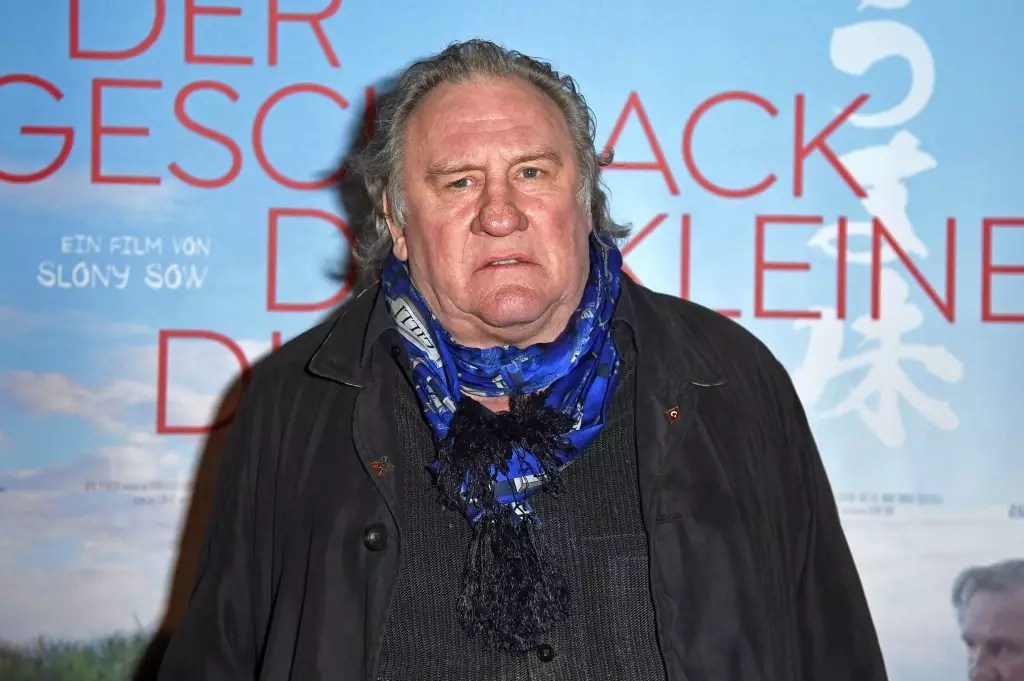Some 600 French art and entertainment world figures have taken a stand against the defense of iconic actor Gérard Depardieu, who has faced multiple accusations of sexual assault and one of rape. In a powerful counter-petition, these individuals condemn a recent open letter signed by 55 cinema celebrities in support of Depardieu, as well as President Emmanuel Macron’s public defense of the actor on a talk show. Their petition, published on the site of investigative news website Mediapart, characterizes these actions as a slap in the face for all victims of sexual violence. This counter-petition is seen as a significant development in the ongoing debate surrounding the #MeToo movement and the presumption of innocence.
The Sinister World That Resists Change
The letter posted on Mediapart’s website paints a bleak picture of a world that refuses to evolve. It accuses Depardieu’s supporters of reversing roles and depicting the actor as a victim, despite the multiple accusations against him. The signatories argue that in cases of gender-based and sexual violence against women, the presumption of innocence for the aggressor often creates a presumption of lying for those who bravely testify against their assailants. This sentiment reflects the larger struggle faced by the victims of sexual violence, who often grapple with societal disbelief and scrutiny when seeking justice.
The signatories of the counter-petition represent a diverse range of individuals from the world of art, music, and cinema. Among them are popular rappers, DJs, singers, and actors, such as Judith Chemla, Felix Maritaud, Waly Dia, and Louise Chevillotte. The inclusion of renowned figures sends a powerful message of unity and solidarity among those who believe in holding individuals accountable for their actions. By publicly denouncing Depardieu’s alleged misconduct, these artists and entertainers aim to challenge the culture of silence that often protects the powerful and discredits victims.
A Fall from Grace
Depardieu’s reputation has taken a significant hit in France following the broadcast of a bombshell edition of the investigative show Complément d’Enquête. The program delved into historic accusations of sexually inappropriate behavior by the actor, bringing the allegations to the forefront. Alongside an ongoing court case involving actress Charlotte Arnould, who accused Depardieu of rape in 2018, multiple women have come forward with accusations of sexual assault against the star. Mediapart had previously published a special report detailing 13 accusations of sexual misconduct against Depardieu. The latest revelations involve French actress Hélène Darras, who lodged a complaint related to events on the set of the 2007 dance comedy Disco, and Spanish journalist Ruth Baza, who reported an incident during an interview in Paris in 1995.
A Shift in Opinion
The counter-petition emerged in response to an open letter supporting Depardieu, which decried what was described as his public “lynching” and the cancellation of a “sacred monster of cinema.” This letter, published in Le Figaro on December 25, garnered significant attention due to its high-profile signatories, including former first lady Carla Bruni and respected actors Charlotte Rampling, Carole Bouquet, Nathalie Baye, and Pierre Richard. However, some signatories have since distanced themselves from the initiative, particularly after revelations regarding the journalist behind the letter, Yannis Ezziad, and his connection to far-right politician Eric Zemmour. Bouquet, who was previously in a relationship with Depardieu, expressed discomfort with her involvement, while filmmaker and writer Nadine Trintignant withdrew her support altogether. These instances highlight the importance of critically examining alliances and avoiding associations with controversial figures.
A Matter of Perspective
While some actors, like Yvan Attal and Gérard Darmon, have clarified their intention to support Depardieu in response to media backlash, their motivations reveal the complexities of the discussion. Attal explained that he signed the original open letter as a reaction to the continuous public shaming of Depardieu, rather than as an endorsement of his actions. The actor believes that the case should be left to the courts, where justice can prevail without perpetuating a trial by media. Similarly, Darmon, who has no personal relationship with Depardieu, signed the open letter as a civic act in opposition to the media’s judgment. Both actors highlight the importance of due process and caution against prematurely casting judgment.
The counter-petition against Gérard Depardieu signifies a profound shift in public sentiment regarding the treatment of sexual assault allegations. It challenges the prevailing culture that often protects influential individuals at the expense of victims. With its diverse signatories and powerful message, the counter-petition stands as a symbol of unity and resistance against impunity. However, the complex dynamics of the debate surrounding Depardieu’s guilt or innocence remind us of the importance of engaging in thoughtful dialogue and considering all perspectives. As society navigates this critical crossroads, it is crucial that we continue to prioritize the voices and experiences of survivors while advocating for justice and accountability.


Leave a Reply